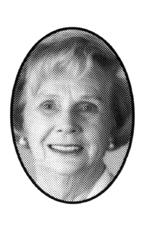Mr. Speaker, I compliment the member from Okanagan on his speech. My ears picked up when I heard him talk about the National Arts Centre. I am not going to disagree with what the member had to say. In fact, I agree there has been a siege mentality at the National Arts Centre that must be overcome.
However, I think that one of the main stumbling blocks is gone. The director general of the National Arts Centre was released from his position just a few weeks ago by the board of the National Arts Centre. I think the number one siege mentality was there.
I think we have to go one step further. I believe that the National Arts Centre must be responsible to this Parliament. Presently it is responsible to Treasury Board. The chairman of the board was appointed by an Order in Council and he was reappointed for another five-year term just prior to the previous government leaving office. I think that has to be corrected before we can get an active input into how the National Arts Centre is maintained.
The National Arts Centre is a Canadian institution. It is the arts centre of all Canadians and it is something that we should all be proud of. I cannot remember the dollar figure but a few dollars from every Canadian went to build that project and it is something that we should all be proud of. It is not Ottawa's. It is not ours just because we live in the nation's capital.
We have to move beyond what has been happening there and look forward to the future and develop our arts and develop our orchestra so that we can all be proud of it right across this country.
I am agreeing with the member. I am not disagreeing. I want us to move forward and make the centre responsible to this Parliament so that he and I as parliamentarians can have some input and some say into how it is being operated.
I do not have a question. I am just agreeing with the hon. member for Okanagan-Similkameen-Merritt.

